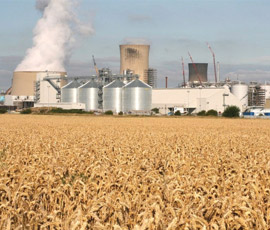‘Poor government plans risk fuel investment’

The government needs to act now on Renewable Transport Fuel Obligation (RTFO) targets to stop investors going elsewhere, an industry seminar was told.
Speakers at the Westminster Energy, Environment and Transport Forum told how the government was unlikely to meet the target of 5% biofuels in road transport fuels by 2013-14, which could put a halt to investment in that sector.
The government has proposed revising the RTFO target down to 4.7% for 2013-14. However, legislation has yet to be put in place.
Head of renewable transport at the Renewable Energy Association, Clare Wenner, criticised the government for taking too long to make a decision on what the target will be and failing to plan beyond 2014, saying it will deter investors from putting money behind biofuels.
“It puts at risk current investment,” she said.
“Investors need certainty. Unless the government is going to meet its own target it needs to work with the industry to provide stability.”
“The target is not particularly stretching. Yield levels could increase by 30-40% in some parts of Europe, and UK agriculture can invest [in these areas].”
Sam Cockerill, Ensus
However, Sam Cockerill, head of business development at Ensus, the UK’s largest biofuels plant, said the target is achievable.
“The target is not particularly stretching. Yield levels could increase by 30-40% in some parts of Europe, and UK agriculture can invest [in these areas],” he said.
After the weather thrashed the national wheat crop in 2012, to some the 4.7% target might look more achievable. But policy should not be based on the weather events of one or two years, said Mr Cockerill, as it did not give a clear picture of the potential for both food and feedstock production.
Rob Ackrill, professor of European economics and policy at Nottingham Trent University, who also spoke at the forum, told delegates there was a great difference between commodity prices and food prices, and that increasing biofuel production would not necessarily mean higher food prices. There were too many influences on the market, he said.
Rather than increasing food prices, moving a larger percentage of wheat production into processing bioethanol could have a stabilising effect on the market, said Mr Cockerill.
Ms Wenner said the government underestimated the ability of farming to respond quickly to market changes. Agriculture had already created slack so that production for biofuels did not impinge on food markets, she said.
Keep up with the latest farm energy and renewables news
